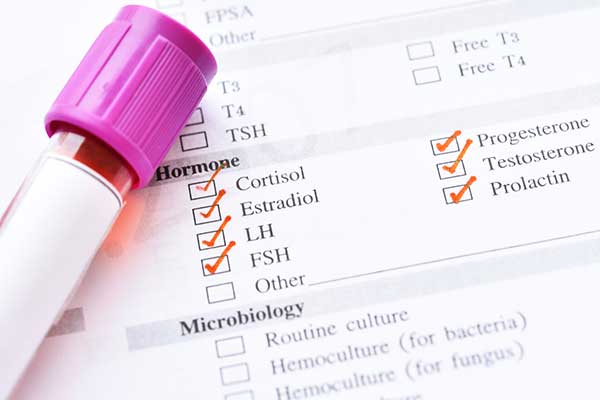Hormones are the master controllers of your body.
They are chemical messengers that tell your organs and glands what to do. When you have a shortage or imbalance, your body no longer functions efficiently.
When we think of hormone problems, menopause in women and low testosterone in men are often the first things that come to mind.
Hot flashes, mood swings, insomnia, dry skin, and fatigue are just a few of the symptoms that occur when women experience the natural decline of estrogen and progesterone during menopause.
And men with “low T” can suffer fatigue, erectile dysfunction, and muscle weakness.
But these two hormone issues are just the tip of the iceberg. The human body has more than 50 different hormones. And if any one of them is out of balance, it may cause health problems.i
And they can plague even young people. Studies have found that 25% of men over 30 and 10% of women over 20 already suffer hormone deficiencies.ii iii
7 Hidden Hormone-Related Symptoms
Your doctor may not even realize that the following conditions can be caused by hormone imbalances:
- Blurred vision. A hormone imbalance can cause vision problems. Hormones regulate body functions that affect eye health. Low testosterone in men is particularly linked to blurry vision.iv
- Fat between shoulders. High levels of the stress hormone cortisol can cause fat to accumulate on the back of the neck and upper shoulders. Sometimes referred to as a “buffalo hump,” this is serious. It is a hallmark of Cushing’s syndrome. It can be fatal. It strikes both men and women. Check with your doctor immediately if you notice it.v
- Unusual and long-lasting acne. If you are well past puberty and you suddenly break out in pimples, a hormone imbalance is the most likely culprit. An excess of androgens in both men and women can cause oil glands to overwork.vi
- Digestive problems. Your gut lining contains cells that respond to estrogen and progesterone. This is true for men as well as women. When these levels are low, nausea, bloating, frequent bowel movements, or diarrhea can occur. High levels of cortisol can lead to irritable bowel syndrome.vii
- Brain fog. In women, low levels of estrogen and progesterone could be the cause. But for both men and women, it could be elevated level of cortisol. Chronically elevated cortisol levels are linked to dementia.viii
- Getting sick all the time. Frequent colds, infections, or other signs of low immunity can be caused by low thyroid hormones.ix
- Sugar cravings. Sugar cravings are a notorious PMS symptom. But men aren’t immune. Testosterone deficiency can increase a man’s urge for sugary foods.x
If you are experiencing any of these problems, talk to your doctor. Most hormones can be checked with a simple blood test.
If you do have a hormone imbalance, see a specialist. Most general practitioners don’t have the expertise you need. You’re better off with an endocrinologist or another physician who specializes in hormone issues.
Editor’s Note: Discover other natural, non-drug methods to transform your health. Read our monthly journal, Independent Healing. It’s your best source for unbiased, evidence-based medical information. Get all the details HERE.
Related Articles
The Hormone That Stops Alzheimer’s
Coronavirus: Scientists Discover Hormone Linked to Increased Death Risk

